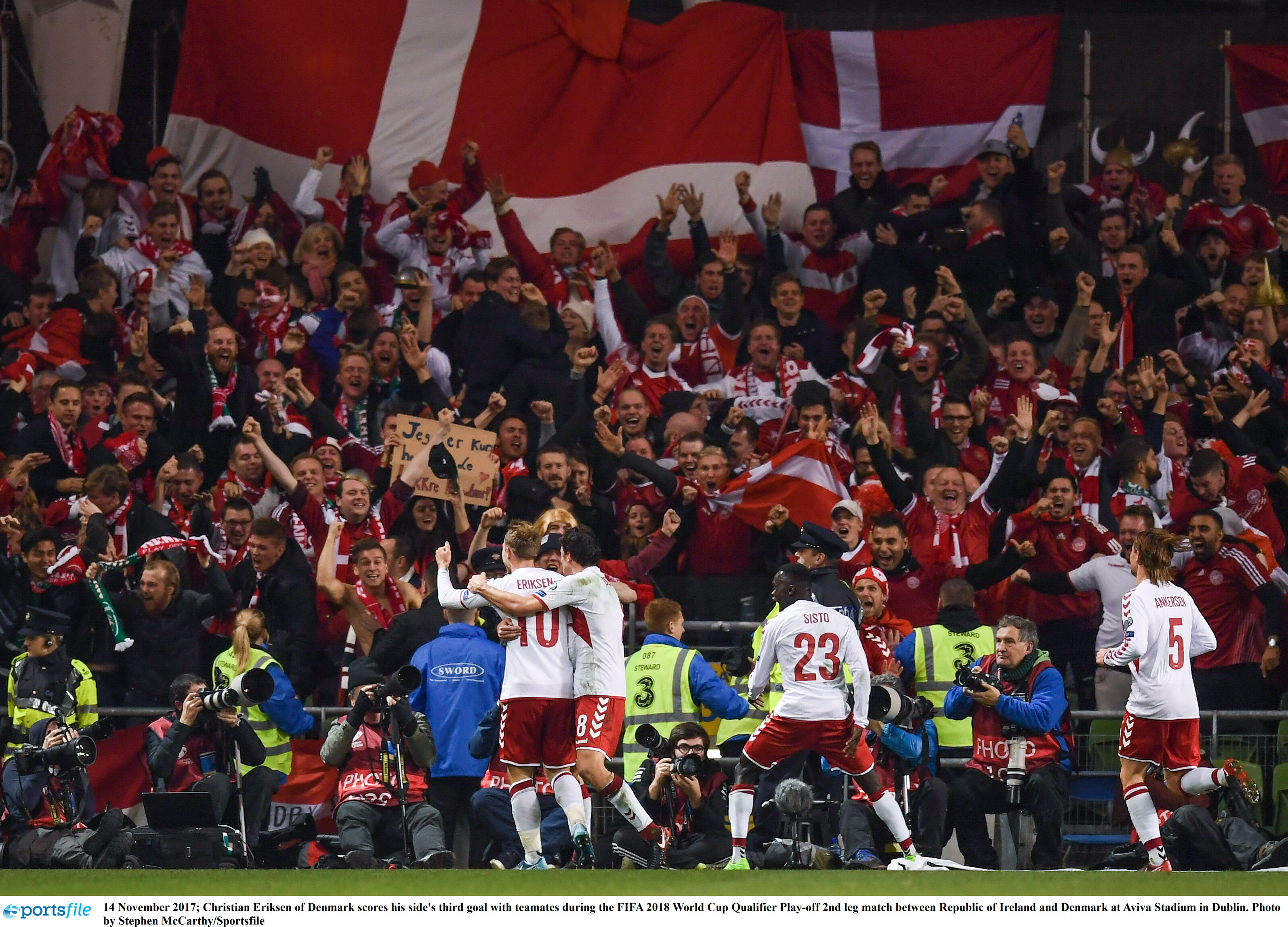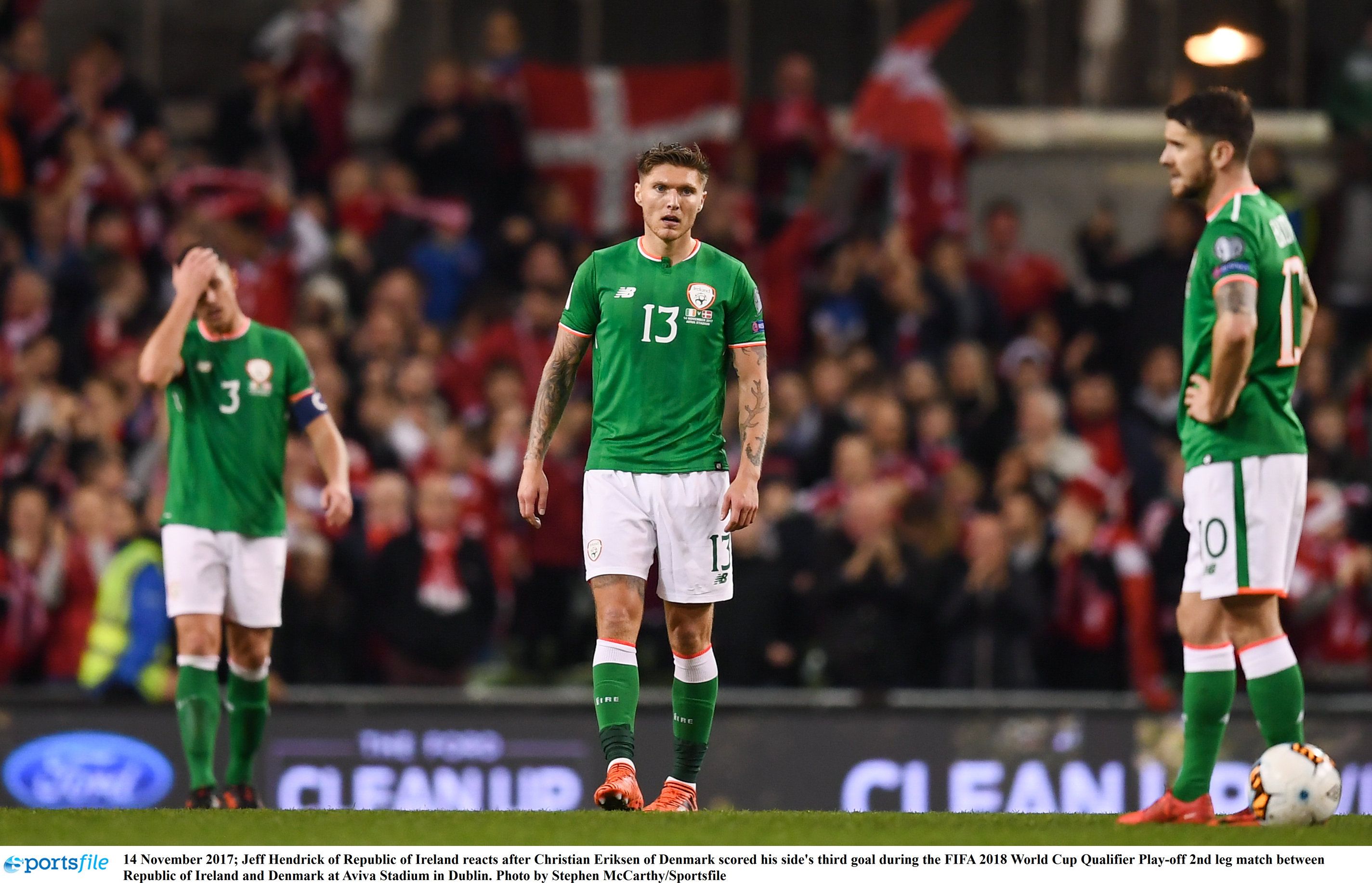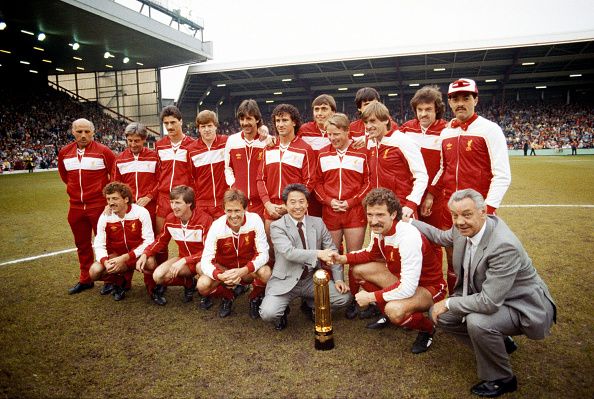

Share
15th November 2017
05:37pm GMT

"'Yes, son,' he says. 'What is it?' And Joe always spoke in a quiet voice, so you had to lean in. I said, 'Joe, I've been here a week and nobody's spoken to me. How does he want me to play?' And he leaned in, so I leaned in, and then he just said, 'F*** OFF!' in this big booming voice. 'We've spent all this money on you and you ask me how to play football!' and he walked away shaking his head."As Liverpool possessed the best players in England and many of the best in Europe, and other teams had a similar outlook regarding tactics and coaching at the time, they got away with this approach. It was the norm in English football at the time. However, the days of prospering with such a laissez-faire attitude, even for teams with world class players, have long gone. O'Neill bemoans that the Republic of Ireland don't have the great players they had in the past, and unfortunately for him they don't. However, it's even more unfortunate for the Ireland manager that it's no longer 1978. Football has completely moved on, O'Neill has long been left behind and that was brutally exposed against Denmark on Tuesday night.
 Everything about the Irish team points to O'Neill deploying this old-school approach. As far as he's concerned, the players in the Irish squad are the best available, they're all professional footballers, they've played the game their entire lives and therefore shouldn't need him to give them detailed instructions on how to play. They've defended corners since they were kids, O'Neill might be telling them where to stand but do they even need that? Christian Eriksen is an excellent player, but the Irish lads have played against great players before and should figure out a way to deal with him. As David Meyler said, Ireland have more heart than Denmark, so there was nothing to worry about.
The players don't know the starting line-up until just before kick-off. Aiden McGeady had to ask a member of the coaching staff what position he was playing in before a game against Germany. O'Neill had just named the team, and left the rest up to the players. Many of O'Neill's former players, most of whom seem to still hold him in high regard and are therefore reluctant to criticise him, have spoken about how little information he shares with them. Shay Given and Craig Bellamy described him as an excellent motivator, but not a manager for the small details, or perhaps any details.
https://twitter.com/SportsJOEdotie/status/930705690531942400
Given, when speaking to Richie Sadlier on Second Captains, offered this assessment of O'Neill:
Everything about the Irish team points to O'Neill deploying this old-school approach. As far as he's concerned, the players in the Irish squad are the best available, they're all professional footballers, they've played the game their entire lives and therefore shouldn't need him to give them detailed instructions on how to play. They've defended corners since they were kids, O'Neill might be telling them where to stand but do they even need that? Christian Eriksen is an excellent player, but the Irish lads have played against great players before and should figure out a way to deal with him. As David Meyler said, Ireland have more heart than Denmark, so there was nothing to worry about.
The players don't know the starting line-up until just before kick-off. Aiden McGeady had to ask a member of the coaching staff what position he was playing in before a game against Germany. O'Neill had just named the team, and left the rest up to the players. Many of O'Neill's former players, most of whom seem to still hold him in high regard and are therefore reluctant to criticise him, have spoken about how little information he shares with them. Shay Given and Craig Bellamy described him as an excellent motivator, but not a manager for the small details, or perhaps any details.
https://twitter.com/SportsJOEdotie/status/930705690531942400
Given, when speaking to Richie Sadlier on Second Captains, offered this assessment of O'Neill:
"From a team-shape point of view, for example we're playing Denmark. What is their system? Normally when the lads meet up, the first couple of days you'd be doing team shape and walking through stuff. This is how they play, Eriksen likes to drop into the hole. Schmeichel gets to the back, he wants to zing it early up front and how to counteract that and all this kind of stuff, but we don't. He won't."Following the goalless draw in the first-leg, Damien Duff said such an approach is "almost a scandal" and he's right. It's pathetic and embarrassing. It belongs in the 1970s and was rightly exposed in the 5-1 defeat to Denmark throughout the qualification campaign. International football isn't the pinnacle of the sport, but the World Cup is still the stage for the 32 best international teams in the world and Ireland don't deserve to be there with a manager who takes such an approach. O'Neill's luck ran out and he got the hiding he deserved for his approach. Everything, from team selection to the shapeless mess of the second-half against Denmark, to his dreadful substitutions and the Irish players bickering and arguing with each other, reflects poorly on O'Neill. It's his job to prepare the team, to make them more than the sum of their parts, to cover the flaws and bring out their positive qualities. It's his job, and the job of his coaching staff, to tailor a plan to stop the opposition. Instead, O'Neill took off Ireland's two most defensively-minded midfielders at half-time - David Meyler and Harry Arter - and left a gaping hole in the middle of the park. The Ireland manager said he had to because the team "had to go for it". He should be awarded an assist for Eriksen's hat-trick.
 At this point, a lot of people reading will say that Ireland lack quality players and O'Neill has considerably less to work with than his predecessors. The team aren’t as talented as past Ireland sides, but overall such an argument is complete bullshit, and shouldn't be tolerated. Irish football is beset with problems, but international football is generally of a poor standard when compared to the top leagues in Europe and the Champions League. A moderately talented team, with the right organisation and a tactically astute manager, can do well. Anyone who says Ireland have missed out on the World Cup because they don't have enough good players hasn't watched Northern Ireland or Iceland recently.
Northern Ireland missed out qualification for Russia because of a terrible referring decision and a last-minute goal line clearance. They don't have as many talented players as the Republic of Ireland, but they pushed Switzerland all the way in their play-off and can feel extremely hard done by. Michael O'Neill has taken the team from being ranked 88th in the world to 20th, to the European Championships and almost to the World Cup. He has done this with around 50 players to choose from, with a team of journeymen and with no outstanding players. He has achieved this through hard work, excellent man-management skills and a lot of coaching. Northern Ireland deserved luck because they prepared correctly, they did everything possible to win, but fell short and can feel no shame. Meanwhile, Martin O'Neill leaves his defence without any protection against one of the most creative and dangerous players in Europe. One O'Neill is an excellent coach, the other belongs in the past, when managers could get away with sending a team onto the pitch without the tactical detail required nowadays.
https://twitter.com/SportsJOEdotie/status/930692099661549569
This is why it's difficult to be too damning of the Irish players after Tuesday's horror show, despite countless individual errors. Everything they did against Denmark, and throughout the campaign, has appeared to have been done off the cuff. Everything - from how they defend set-pieces, to their passes, the positions they take up in possession, to their aimless hoofs - suggests a hopefulness rather than a plan. They've been exposed and let down by their manager. There's no discernible pattern of play and no idea of how to hurt the opposition.
For example, central defender Simon Kjaer sprayed some dangerous passes against Ireland in the first-leg, one of which almost led to a goal but for Darren Randolph's double save. A tactically astute manager would have realised that Daryl Murphy can't press the opposition defence, but Shane Long can. A tactically astute manager would have realised Long could have harried Kjaer and gave Ireland a chance to win the ball on the counter-attack. This is about as basic as it gets in football, yet O'Neill only used Long when the tie was dead in Dublin.
The first goal Ireland conceded against Denmark was like something you'd see from a pub team, as bad as any you'll ever see at international level. As Dion Fanning wrote:
At this point, a lot of people reading will say that Ireland lack quality players and O'Neill has considerably less to work with than his predecessors. The team aren’t as talented as past Ireland sides, but overall such an argument is complete bullshit, and shouldn't be tolerated. Irish football is beset with problems, but international football is generally of a poor standard when compared to the top leagues in Europe and the Champions League. A moderately talented team, with the right organisation and a tactically astute manager, can do well. Anyone who says Ireland have missed out on the World Cup because they don't have enough good players hasn't watched Northern Ireland or Iceland recently.
Northern Ireland missed out qualification for Russia because of a terrible referring decision and a last-minute goal line clearance. They don't have as many talented players as the Republic of Ireland, but they pushed Switzerland all the way in their play-off and can feel extremely hard done by. Michael O'Neill has taken the team from being ranked 88th in the world to 20th, to the European Championships and almost to the World Cup. He has done this with around 50 players to choose from, with a team of journeymen and with no outstanding players. He has achieved this through hard work, excellent man-management skills and a lot of coaching. Northern Ireland deserved luck because they prepared correctly, they did everything possible to win, but fell short and can feel no shame. Meanwhile, Martin O'Neill leaves his defence without any protection against one of the most creative and dangerous players in Europe. One O'Neill is an excellent coach, the other belongs in the past, when managers could get away with sending a team onto the pitch without the tactical detail required nowadays.
https://twitter.com/SportsJOEdotie/status/930692099661549569
This is why it's difficult to be too damning of the Irish players after Tuesday's horror show, despite countless individual errors. Everything they did against Denmark, and throughout the campaign, has appeared to have been done off the cuff. Everything - from how they defend set-pieces, to their passes, the positions they take up in possession, to their aimless hoofs - suggests a hopefulness rather than a plan. They've been exposed and let down by their manager. There's no discernible pattern of play and no idea of how to hurt the opposition.
For example, central defender Simon Kjaer sprayed some dangerous passes against Ireland in the first-leg, one of which almost led to a goal but for Darren Randolph's double save. A tactically astute manager would have realised that Daryl Murphy can't press the opposition defence, but Shane Long can. A tactically astute manager would have realised Long could have harried Kjaer and gave Ireland a chance to win the ball on the counter-attack. This is about as basic as it gets in football, yet O'Neill only used Long when the tie was dead in Dublin.
The first goal Ireland conceded against Denmark was like something you'd see from a pub team, as bad as any you'll ever see at international level. As Dion Fanning wrote:
"Ireland, as O’Neill likes to say, wouldn’t die wondering, but in the second half they might have died wondering what formation they were supposed to be playing."This explains why people who know what they're talking about recognised the need for Wes Hoolahan to play. Without him, the team is brainless. Hoolahan provides order and craft to the shapeless chaos, he attempts to link-up play and improves those around him. In his absence, with an anarchic tactical plan imposed by the manager and the players forced to improvise, the team hoof the ball away, not wanting to make a mistake, while they hoped for a slice of luck from a set-piece. All the time, they drop deeper and deeper, unsure whether to press in midfield or stand-off. It’s a mess. https://twitter.com/ConanDoherty/status/930700474872983552 This isn't a question of "good" or "bad" football, about being "pragmatic" or "purist", because it really doesn’t matter how Ireland play if they get results. But it does matter how they prepare and how they’re organised. With O'Neill, the emphasis seems to be just to work hard, run hard, show some “character” and win by whatever means possible. Such an approach isn't enough anymore, and it leads to the ugly and ineffectual football we’ve seen from Ireland over the last year. O'Neill helped get Ireland to the largest European Championships in history, but his limits have been exposed. The Denmark defeat had been coming, and O'Neill deserves it for his approach. Surely Roy Keane has told the Ireland manager that if he fails to prepare then he should prepare to fail? Souness tells another story about the approach of the Liverpool management during the team’s glory days. Before his final game, the 1984 European Cup final which Liverpool won on penalties, the team were extremely relaxed about the opposition. “When it come to the game, we’ve never mentioned Roma - we’re playing Roma in Rome (but) we’re Liverpool,” Souness told Graham Hunter. “They’ve got World Cup winners, they’ve got Cerezo and Falcao – two great Brazilian midfield players, (but) we’ve never mentioned them."
 Souness also detailed manager Joe Fagan’s speech to the team on the day of the final.
Souness also detailed manager Joe Fagan’s speech to the team on the day of the final.
“We’re having our lunch, Joe stood up, tapped his glass, asked the waiters to leave, and we’re all nudging each other, saying ‘what’s he going to say?’ because we never had team meetings. No-one ever spoke, we’ve not mentioned Roma. So, he stood up, and he said, ‘Big game tonight, these are a good team, they must be a good team, they won the championship last year, in the final of the European Cup’. And then he said, ‘But they can’t be as good as us. Now the bus leaves at 5:30, so make sure you’re not late'."This approach had a certain charm, and it makes for a great after-dinner anecdote, but it wouldn't be acceptable in modern football. That was 1984. But could you imagine a manager saying such a thing in 2017? Ireland would have prepared better under O'Neill than Liverpool did in 1984, but this is the world O'Neill comes from, it is the period of time he references regularly and, after Tuesday, it may be the world he belongs in. He hasn’t adapted his approach and the players suffered for it on Tuesday. They deserved better and Irish football deserved better. The defeat to Denmark had been coming, and an awful lot of the blame lies with O'Neill.
Explore more on these topics: